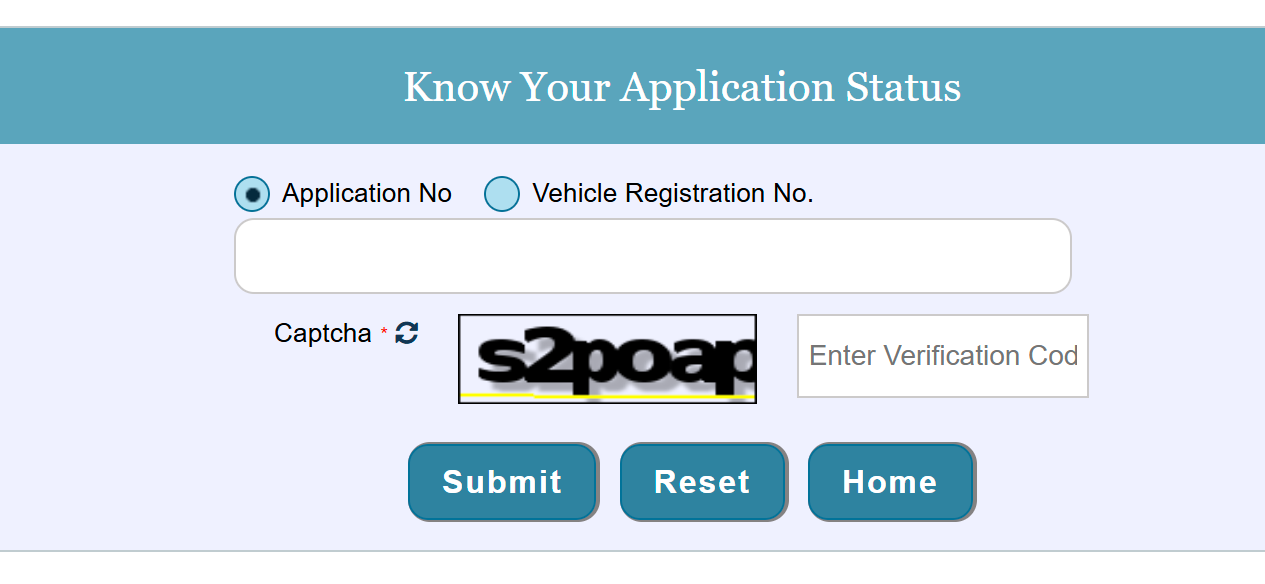The Registration Certificate (RC) is a legal document proving a vehicle's registration and ownership, mandatory under the Motor Vehicles Act, 1988.
For private vehicles, the RC is valid for 15 years from issuance and must be renewed every 5 years thereafter, provided the vehicle is deemed roadworthy by the Regional Transport Office (RTO).
Below is a detailed, well-researched guide to the RC renewal process in India, covering steps, documents, fees, and guidelines
Online RC Renewal Process
The Parivahan Sewa portal (parivahan.gov.in) offers online RC renewal in many states. Follow these steps:
- Visit the Portal: Go to the Parivahan Sewa website and select “Online Services” > “Vehicle Related Services.”
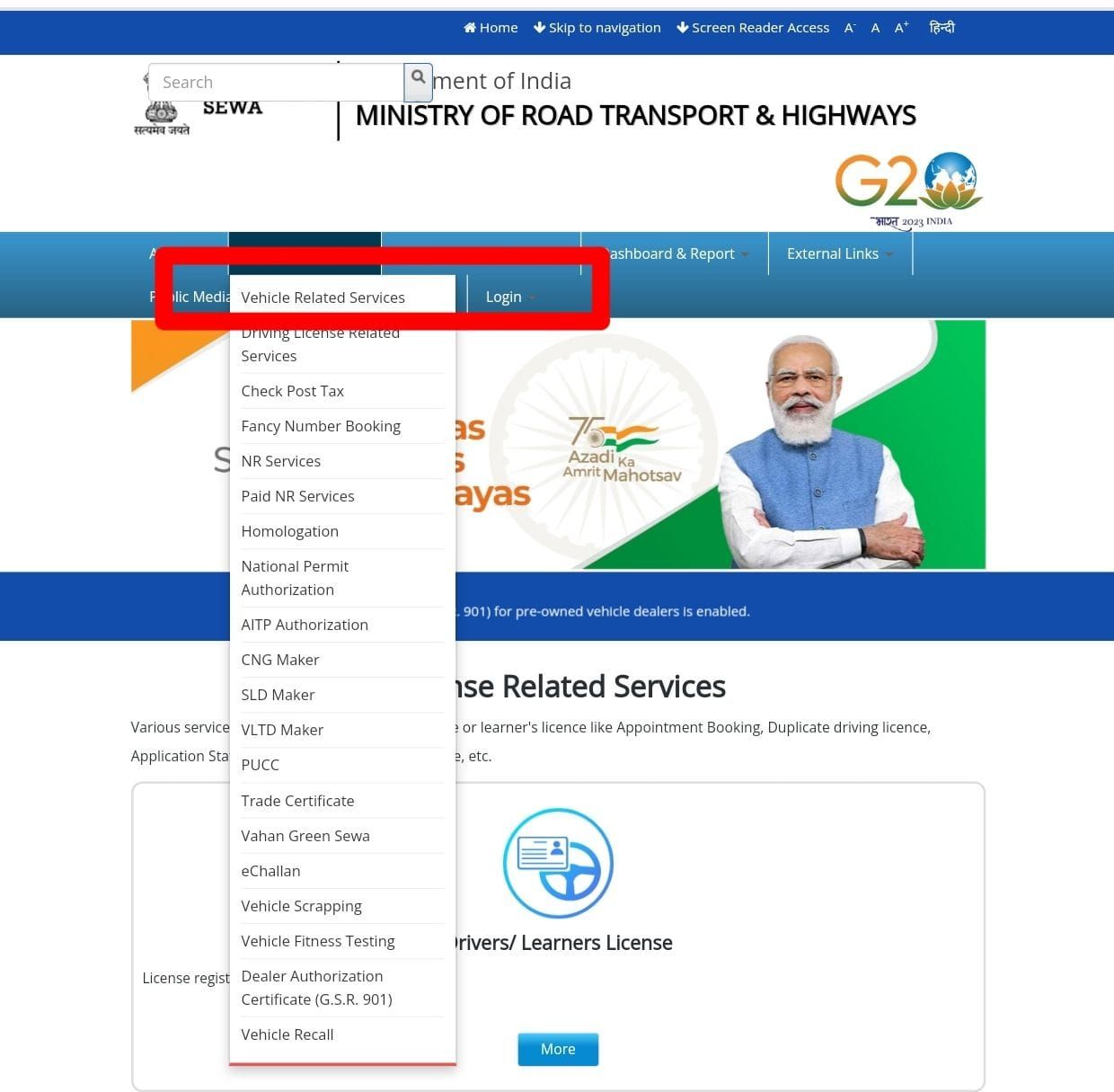
- Select State and RTO: Choose your state and the nearest RTO, then click “Proceed.”
- Access RC Services: From the “Services” dropdown, select “RC Related Services” > “Renewal of Registration.”
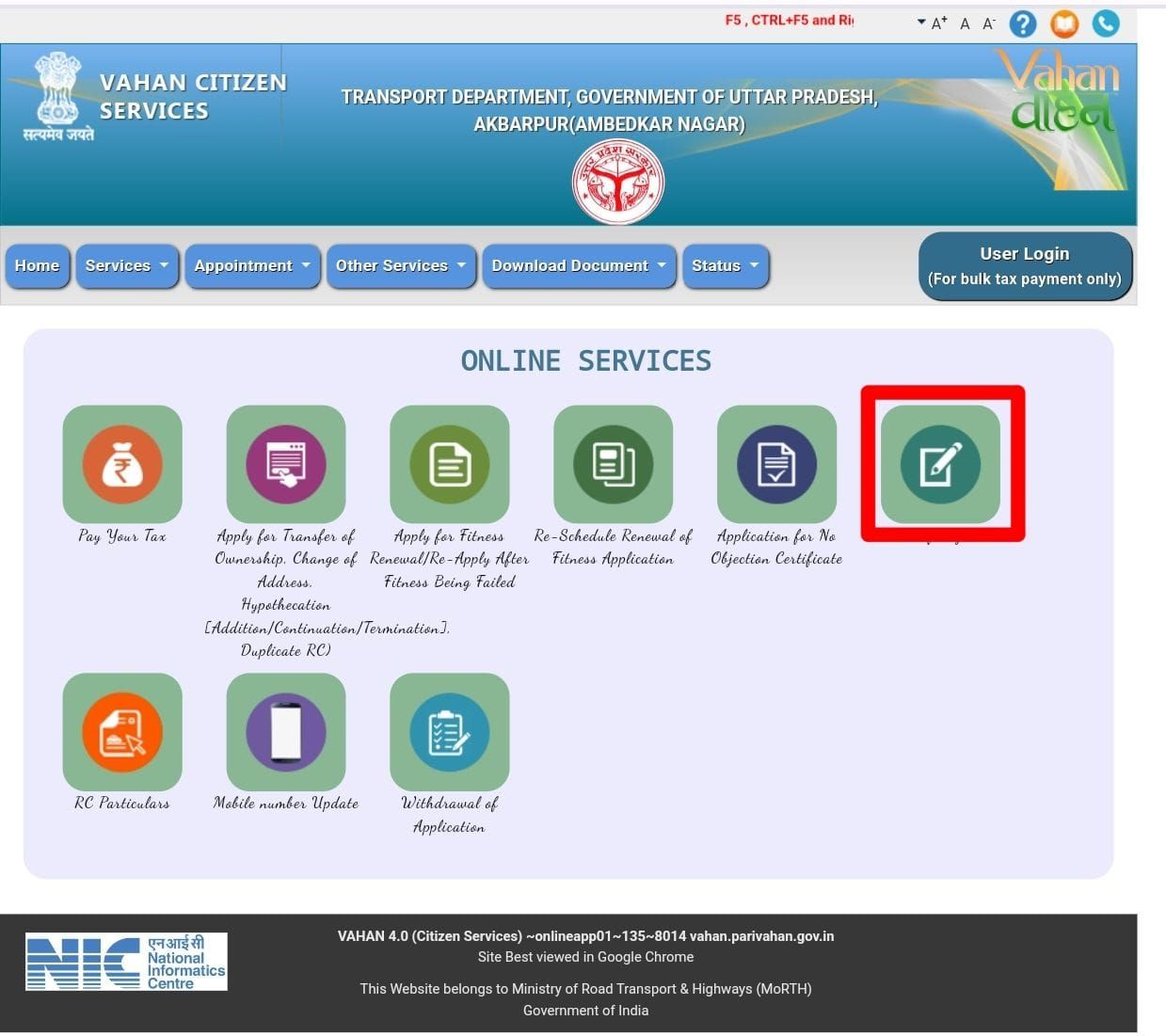
- Enter Vehicle Details: Input your vehicle registration number and the last five digits of the chassis number, then click “Verify Details.”
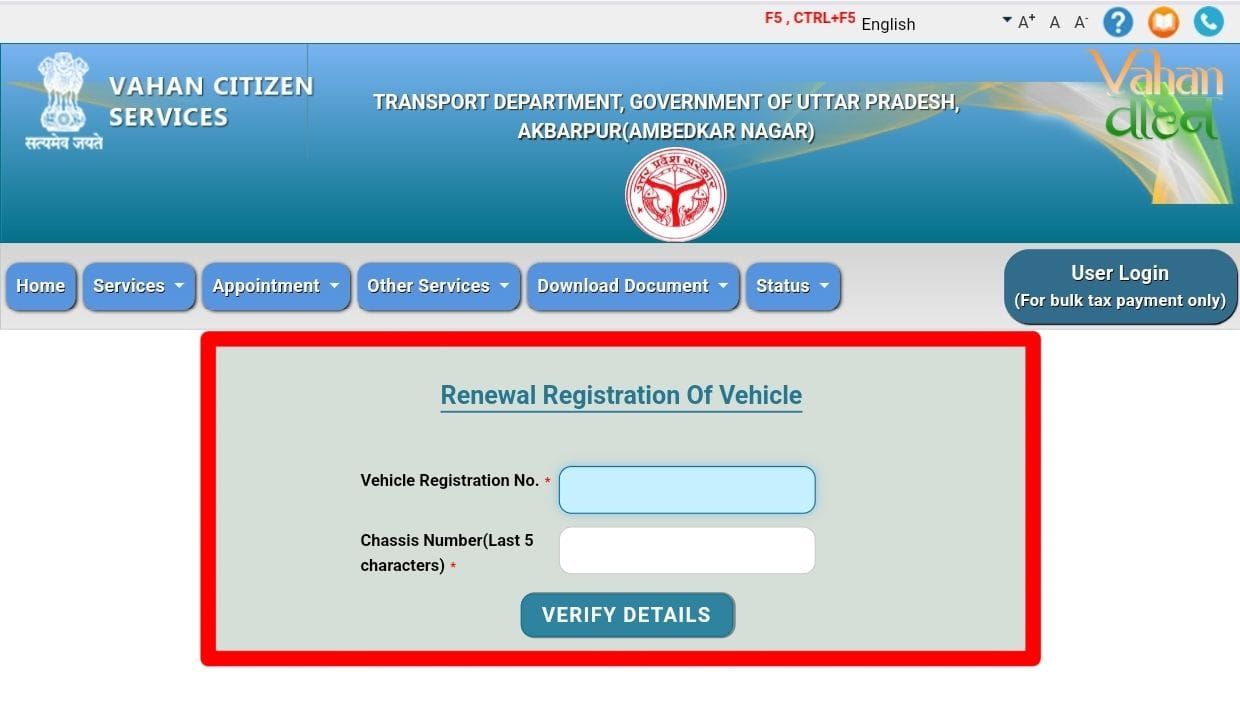
- Pay Outstanding Taxes: Review and settle any pending road taxes using debit card or net banking.
- Upload Documents: Upload scanned copies of Form 25, PUC certificate, insurance certificate, identity proof, and other required documents.
- Schedule Inspection: Book an appointment at the RTO for vehicle inspection, if required.
- Pay Renewal Fee: Pay the applicable fee online (varies by vehicle type and state, see below). Download the payment receipt.
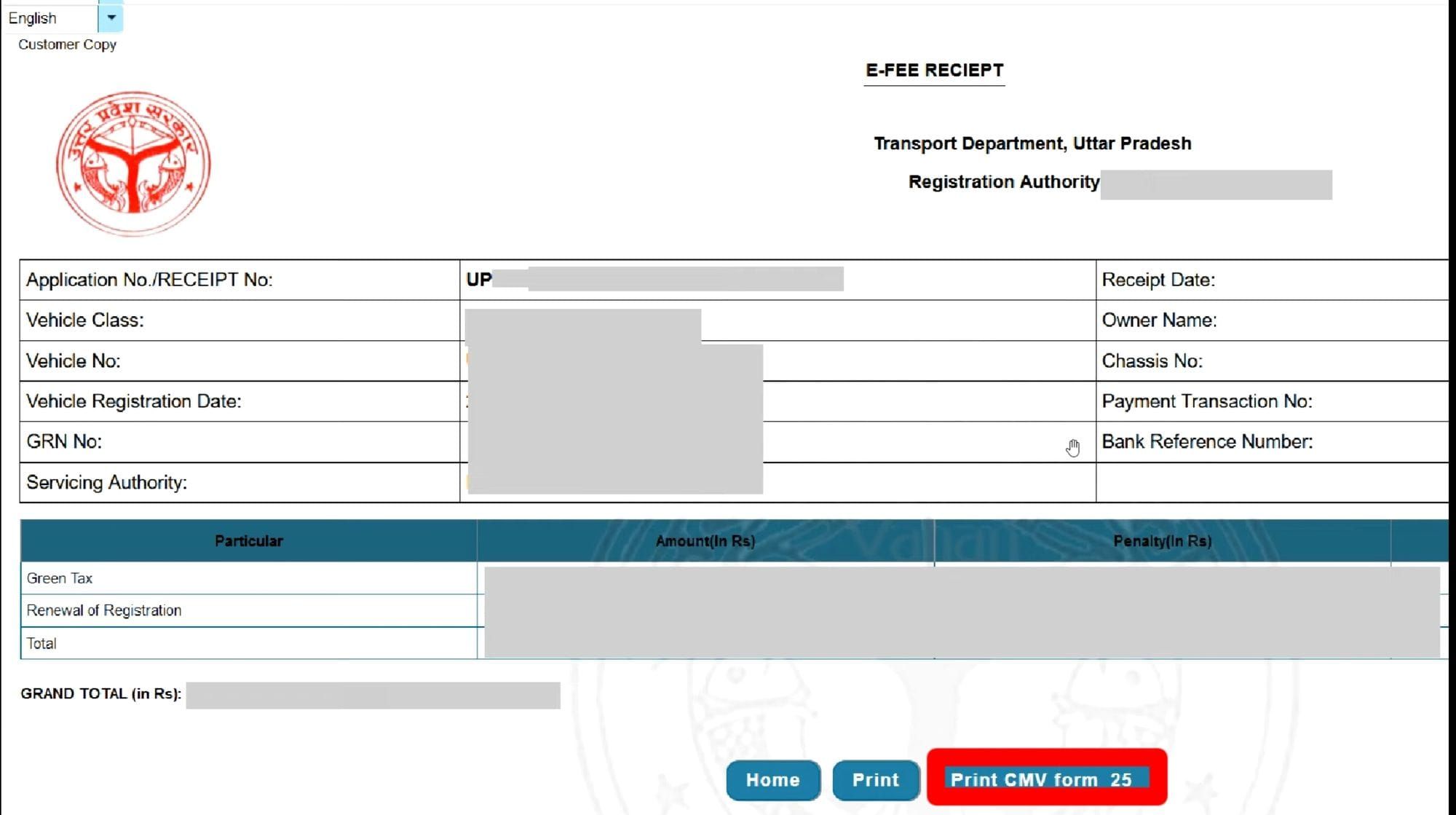
- Receive RC: After document verification and inspection, the renewed RC is sent to your registered address within 2 weeks.
Offline RC Renewal Process
If online renewal is unavailable or preferred, follow these steps:
- Collect Documents: Gather all required documents listed above.
- Visit RTO: Go to the RTO where the vehicle is registered during working hours.
- Obtain Form 25: Request the RC renewal application form (Form 25) from the RTO or download it from the Parivahan Sewa website.
- Fill and Submit: Complete Form 25 with accurate details and attach all required documents.
- Pay Fees and Taxes: Pay the renewal fee and any outstanding taxes at the designated counter. Obtain a receipt.
- Vehicle Inspection: Present the vehicle for inspection at the RTO, if required, to verify roadworthiness.
- Verification and Issuance: The RTO verifies documents and inspection results. Upon approval, the renewed RC is issued or mailed to your address.
Renewal Fees
RC renewal fees vary by vehicle type and state, as per Rule 81 of the Central Motor Vehicle Rules, 1989. Typical fees include:
- Two-wheelers: ₹300
- Four-wheelers (non-transport): ₹600–₹1,000
- Commercial vehicles: Higher, depending on vehicle class
- Smart card RC: Additional ₹200
- Late fees: ₹300/month (two-wheelers) or ₹500/month (other non-transport vehicles) if applied after 60 days post-expiry.
Check with your local RTO for exact fees, as they may differ.
Penalties for Non-Renewal
Driving with an expired RC violates the Motor Vehicles Act and can result in:
- First offense: Fine up to ₹5,000
- Subsequent offenses: Fines up to ₹10,000, vehicle impoundment, or court proceedings
Renewal after expiry is possible with a penalty fee, but timely renewal avoids legal issues.
Key Guidelines
- Application Timing: Apply for renewal using Form 25 within 60 days before RC expiry to avoid penalties.
- Taxes and Dues: Clear all vehicle taxes and fines before applying.
- Vehicle Inspection: RTO may require inspection for roadworthiness, emissions, and safety.
- Online/Offline Options: Renew online via Parivahan Sewa portal or offline at local RTO (online availability varies by state).
Documents Required
- Form 25: Completed application form.
- Original RC: Current RC or smart card (apply for duplicate if lost).
- PUC Certificate: Valid emission compliance certificate.
- Vehicle Insurance: Proof of valid motor insurance.
- Road Tax Payment Proof: Receipt or statement of paid taxes.
- Fitness Certificate: Mandatory for commercial vehicles, optional for private unless required.
- PAN Card or Form 60/61: Copy of PAN or Form 60/61 if PAN unavailable.
- Chassis and Engine Pencil Print: Imprints of vehicle’s chassis and engine numbers.
- Signature Identification: Document verifying owner’s signature.
- Identity and Address Proof: Aadhaar, voter ID, passport, or similar ID.
Ensure all documents are valid to avoid delays.
Checking RC Renewal Status
Track your application status online:
- Visit the Parivahan Sewa portal > “Online Services” > “Vehicle Related Services.”
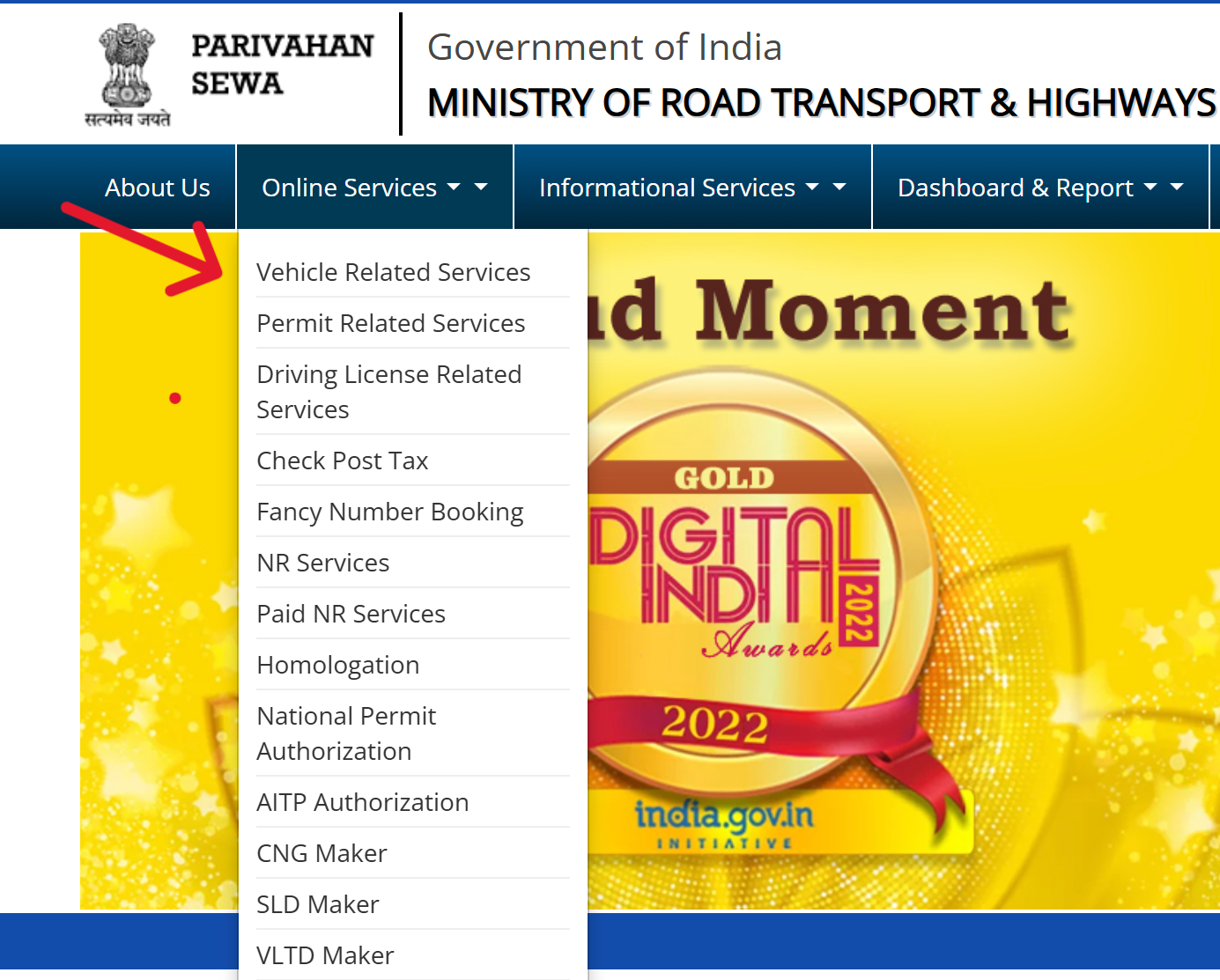
- Select your state and RTO, then choose “Status” > “Know Your Application Status.”
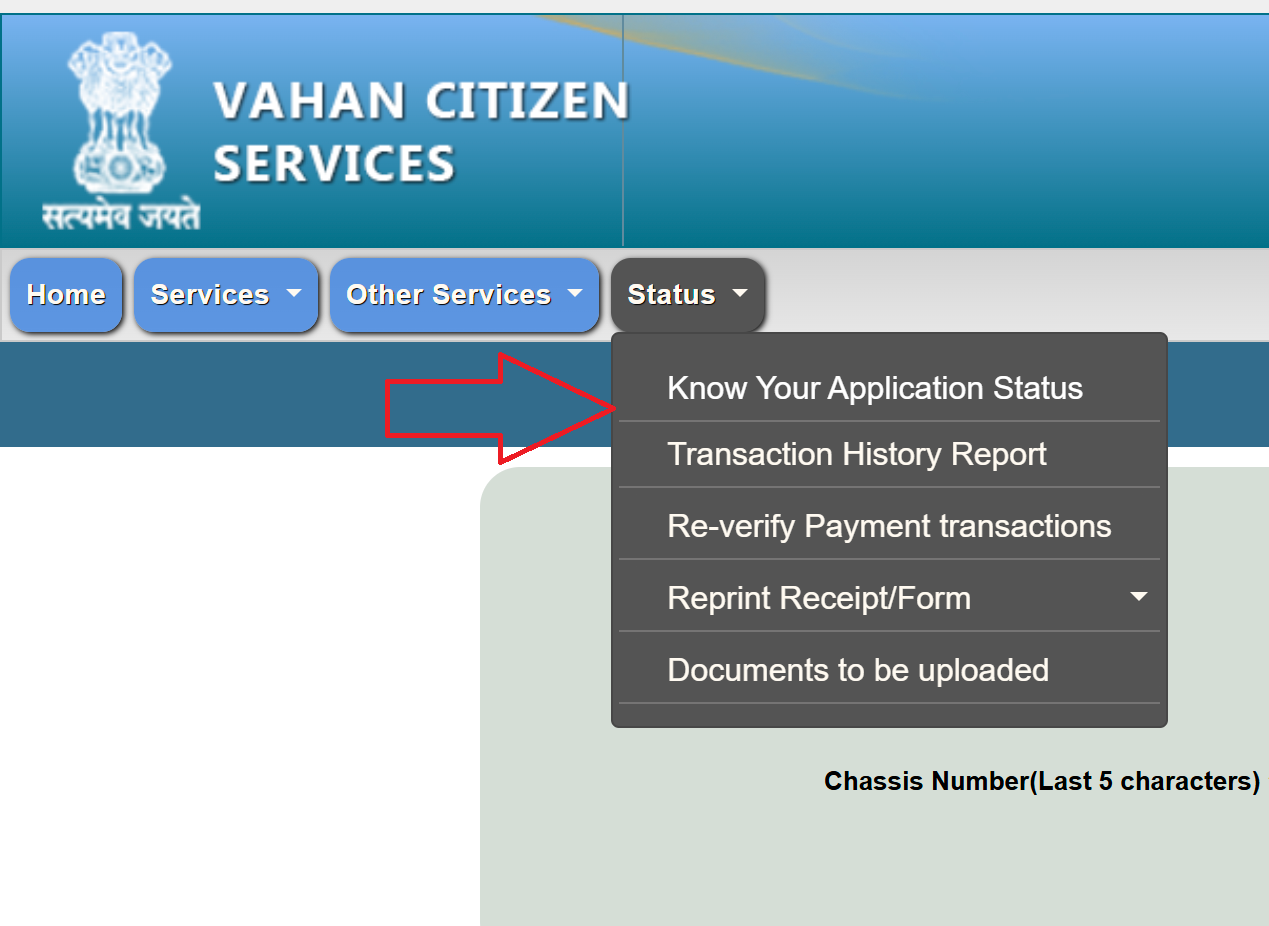
- Enter your application number or vehicle registration number and submit. View the status (e.g., under review, approved, or pending requirements).
